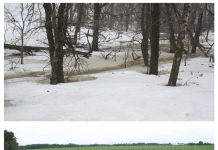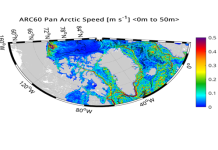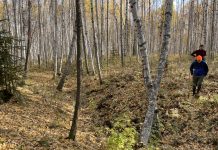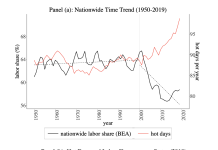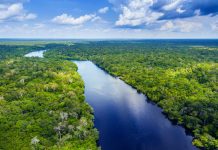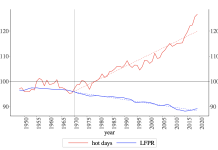Open Access Government produces compelling and informative news, publications, eBooks, and academic research articles for the public and private sector looking at health, diseases & conditions, workplace, research & innovation, digital transformation, government policy, environment, agriculture, energy, transport and more.
Home 2025
Archives
Why riparian buffers fail to filter agricultural runoff contaminants
In this article, Dr David Lobb of the University of Manitoba examines why riparian buffers often fail to filter contaminants from agricultural runoff, particularly in cold climate regions.
Women and heat stress: A silent risk in the climate-exposed workforce
As global temperatures rise, sex-specific vulnerabilities to extreme heat are emerging as a critical blind spot in occupational health policy. Luana Main and Lilia Convit explain.
Unlocking global climate finance: Governments must champion carbon markets
While governments worldwide are stepping up to support voluntary carbon markets, now is the time to scale climate finance with integrity and impact, Chris Duck from Climate Impact Partners argues.
Proving the power of biochar beyond net zero
Concerning proving the power of biochar beyond net zero, Alastair Collier, Chief R&D Officer, and Dr Sally Wilkinson, Lead Scientist at A Healthier Earth, provide insight.
COP30 in Belém: Leadership between two worlds
Professor Richard Beardsworth continues his analysis of expectations for COP30 in Belém, as he navigates leadership between two realms, one rules-based and co-operative, the other nationalist-populist and centrifugal.
Modelling ocean currents in a changing climate
Paul Myers, Professor at the University of Alberta, emphasizes the necessity for a new generation of very high-resolution computer models to effectively understand how ocean currents will change in a warming climate.
The challenges around the fastness of natural dyes for textiles
Victor Durand from Ever Dye sheds light on the challenges surrounding the fastness of natural textile dyes. Dive into his insights, and learn why this issue is crucial for the future of the textile industry.
Cryptic ground ice conditions in permafrost and northern agricultural expansion
Permafrost conditions are often heterogeneous and concealed beneath the surface, becoming evident only when thawing occurs. Melissa Ward Jones discusses these challenges and highlights a new publication that identifies ice wedges for the first time in the Yukon-Kuskokwim Delta region of Alaska.
Climate change reduced the labour share in the 21st Century
Masahiro Yoshida, from Waseda University’s Department of Political Science and Economics, presents a new theory and evidence linking climate change to the decline of labour share.
Protection from occupational heat stress amid rising global temperatures
Prof Luana Main emphasises that as extreme heat events become more frequent due to rising global temperatures, immediate action is essential to protect workers through evidence-based and context-specific risk mitigation strategies and solutions.
COP30 in Belém: A new horizon for climate leadership
Professor Richard Beardsworth looks ahead to COP30 in Belém, considering whether this could represent a new era for climate leadership with Brazil positioned to lead, at least in partnership with other major actors.
Water pollution in the textile industry: An urgent call for sustainable innovation
For business leaders and scientific professionals, addressing water pollution is crucial for the environment, economy, regulatory compliance, and public reputation. Victor Durand at Ever Dye highlights this issue in the textile industry and urgently calls for sustainable innovation.
Climate and hydrologic change across the Great Lakes region and other transboundary waters
Scott Steinschneider, M. Altaf Arain, Paulin Coulibaly, Andrew Gronewold, and Gail Krantzberg, explore climate and hydrologic change across the Great Lakes region in North America and other transboundary waters.
Carbon-neutral lifestyle changes and their impact on future health in cities
Dr Peter Hoffmann and Deniz Sirin at Climate Service Center Germany explore carbon-neutral lifestyle changes and their impact on future health in cities.
Modeling and mapping forest carrying capacity
Mark Kimsey, Director of the Intermountain Forestry Cooperative, discusses the modeling and mapping of forest carrying capacity, beginning with the historical context.
Permafrost resilience in the era of climate change and Earth system modeling
In this analysis from Everest Group, explore the resilience of permafrost in the context of climate change and earth system modeling, with an emphasis on how science and technology are enhancing Arctic stability and global risk management.
Climate change and the rise of adult male dropouts
Masahiro Yoshida from Waseda University’s Department of Political Science and Economics explores the link between global warming and male labor force participation.
CO2 mineralization in cement and concrete
Hegoi Manzano from the University of the Basque Country (UPV/EHU) explores CO2 mineralization in cement and concrete, along with related EU policies and programmes, as well as carbon capture, utilisation, and storage.
Horticulture: Hormonal therapy for grapevines
Jim Willwerth, Assistant Professor and Researcher at Brock University, Canada, in this horticulture discussion, delves into what we need to know about hormonal therapy for grapevines, including plant growth regulators.
How can carbon capture surfaces help the planet?
Beth McDaniel, JD, President of Reactive Surfaces highlights the potential of Carbon Capture Surfaces (CCS), an innovative and affordable of method using algae for CO2 removal, addressing the urgent need for scalable solutions to combat climate change.

